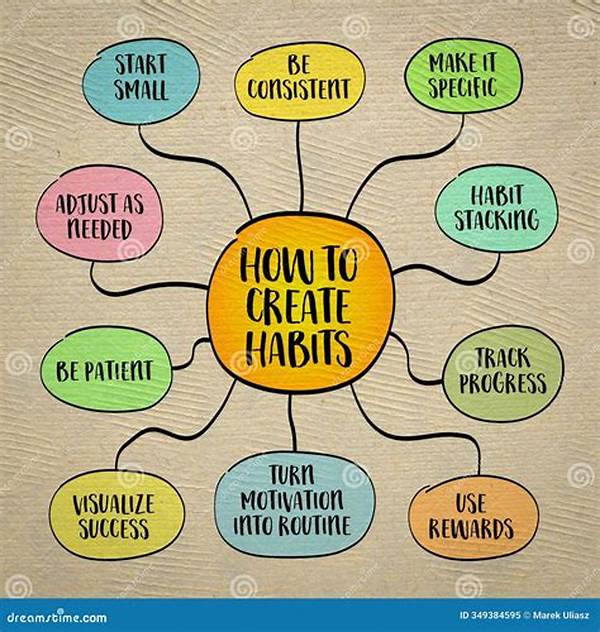- Embracing Journaling for Greater Productivity
- Introducing the Journaling Habit
- Elevating Productivity through Written Reflection
- Topics Related to the Link Between Journaling and Productivity
- Unlocking Workflow Efficiency
- Understanding the Link: Journaling and Productivity
- Your Journey to Enhanced Productivity
- Exploring Journaling for Productivity
- Journaling: A Gateway to Increased Functionality
- The Practical and Emotional Merits of Journaling
Entering the world of productivity can often feel like stepping into a complex maze of techniques and strategies, each promising to transform your life into an organized masterpiece. In the midst of planners, productivity apps, and countless time management books, there’s a tool that stands out with simplicity yet profound impact: journaling. The link between journaling and productivity is not just a buzzword; it’s a well-researched and impactful strategy employed by some of the most successful people in the world. So, why is this traditional practice making waves in the digital age? Let’s embark on a journey to uncover how the humble act of journaling can supercharge your productivity, harness your mental clarity, and even bring a splash of creativity into your daily routine.
Read More : Digital Vs Paper Journaling Which Works Best
Journaling is not just about pouring out your thoughts onto paper; it’s an art of reflection, planning, and creativity bundled into one. For many, journaling serves as a mental dumping ground where worry meets resolution and where abstract ideas are transformed into actionable plans. According to a study published in the Journal of Experimental Psychology, individuals who regularly journal report a significant improvement in focus and output. This is largely attributed to the practice of organizing thoughts, setting priorities, and reducing clutter in the mind. As a result, journaling becomes a tool for channeling your inner chaos into an external order, leading to enhanced productivity.
Furthermore, the link between journaling and productivity is illuminated by its power to foster self-discipline. When you track your goals, note your aspirations for the day, and reflect on your progress, it cultivates a keen sense of accountability. This discipline extends beyond the pages of your journal and spills into your day-to-day activities, making it easier to stay on task and complete projects. Moreover, journaling is also an emotional outlet, enabling a balance of mental health alongside productivity, ensuring a holistic approach to personal development.
In today’s fast-paced world, the allure of being busy often overshadows actual productivity. The distinction is crucial, and this is where journaling stands out as a knight in shining armor. It allows you to pause, prioritize, and plan your actions with intentionality rather than getting lost in the whirlwind of endless tasks. As you uncover the secrets that lie within the pages of your personal journal, the clarity, focus, and motivation gained makes the link between journaling and productivity not just evident, but essential.
Embracing Journaling for Greater Productivity
The key to unlocking your productivity potential through journaling starts with adopting the practice into your daily routine. Whether you’re an early bird or a night owl, set aside a quiet moment for self-reflection. As you write, let go of rigid structures and allow your thoughts to flow freely. Remember, the journal is yours — your safe space to dream big, plan meticulously, and reflect honestly. Enjoy this journey; as the ink flows, so too will your path to a more productive and fulfilling life. Embrace the link between journaling and productivity, and watch productivity soar like never before.
—
Introducing the Journaling Habit
Journaling, an age-old practice celebrated for its creative and cathartic capacity, has increasingly become a tool of choice for boosting productivity. However, why is the seemingly simple habit of putting pen to paper so effective in navigating the tumult of daily tasks? The answer lies not just in its tradition, but in its unique ability to transform our thoughts, motivations, and workflow. The link between journaling and productivity has found a compelling ally in the modern world, widely acknowledged both by psychological studies and personal testimonies.
Engaging in journaling is akin to embarking on a personal dialogue. Each entry becomes a reflective narrative where your ideas and experiences are examined and unwrapped. As you write, complex thoughts and nagging worries find structure and clarity, making it easier to focus on what truly matters. Not surprisingly, studies have shown that people who journal regularly feel more centered, exhibit higher levels of concentration, and are more driven in accomplishing their tasks.
Now, let’s address the naysayers who often dismiss journaling as little more than a creative outlet or an antiquated hobby. While it certainly is a source of creativity, its efficacy goes far beyond that. By providing a forum for introspection and planning, journaling becomes a powerful foundational habit for tackling life’s challenges, and, by extension, increasing one’s productivity in remarkable ways.
Elevating Productivity through Written Reflection
But how does this practice transform from mere reflection to a productivity powerhouse? The pivotal role that self-awareness plays cannot be overstated. By continuously tuning into your mental state through journaling, you’re fostering an awareness that seamlessly translates into action. Consider it analogous to a performance review on a personal scale, shedding light on what’s fueling your productivity and what might be holding you back. This nuanced understanding is at the core of the link between journaling and productivity.
Every journal entry is an opportunity. A moment to devise strategies, set goals, and curb procrastination that lurks around the corner. What if I told you that through a daily journal, even the act of jotting down tomorrow’s tasks could significantly reduce anxiety and boost motivation? It sounds almost too good to be true, yet testimonies from individuals across the globe underscore its veracity.
So, if you’re seeking not just to tame the chaos of a cluttered mind, but to ascend to new heights of efficiency, let the synergy between journaling and productivity be your guide. Grab a pen, open a fresh page, and begin your journey towards a more organized, focused, and ultimately productive life. The practice is as rewarding as the results, offering insights that promise to resolve your greatest productivity puzzles with grace.
—
Topics Related to the Link Between Journaling and Productivity
- The Psychological Benefits of Journaling
- How Journaling Boosts Focus and Concentration
- Journaling as a Tool for Goal Setting and Resolution
- The Role of Journaling in Emotional Regulation and Productivity
- Strategies for Effective Journaling for Productivity
- The Impact of Journaling on Creativity and Problem Solving
- Balancing Digital Tools and Traditional Journaling
- Personal Success Stories: Real-life Accounts of Journaling’s Impact on Productivity
Unlocking Workflow Efficiency
The art of maintaining an effective workflow often comes up against numerous distractions and interruptions that are inherent in our digital age. Amidst distractions, journaling emerges as an anchor, helping us maintain a focus that ripples outward into our work performance. The link between journaling and productivity is rooted in this very capacity to streamline thoughts and actions in the muddled milieu of the modern work environment.
Journaling thrives on consistency. The disciplined act of revisiting goals, reflecting on progress, and aligning tasks with personal aspirations can create a roadmap that optimizes day-to-day functioning. A study in workplace efficiency found that just fifteen minutes spent reflecting through journaling significantly improved task completion rates among workers, illustrating that introspection and planning are invaluable escutcheons against the hazard of burnout.
In essence, journaling marries mindfulness with practical action. It fosters an environment ripe for innovation, strategy, and action — not merely aiding workflow but enhancing it to unprecedented levels. Embracing this practice is not just an exercise in writing but a gateway to achieving a seamless, productive life. Explore the link between journaling and productivity and take the first step towards a life where chaos transforms into coordinated action.
—
Understanding the Link: Journaling and Productivity
The narrative of boosting productivity is often laden with tales of complexity and high-purpose strategies. Yet, in this difficulty lies a simple yet transformational tool: journaling. The link between journaling and productivity begins with the power of reflection, a practice that positions clarity and motivational force at the helm of every action you take.
Delving into a journal offers clarity seldom found in other habits. This regenerative practice empowers individuals to push past impediments and embrace tasks with renewed vigor. The journal, a personal sanctuary, becomes a canvas of exploration: a place where the day’s distractions are gathered and distilled into insightful direction and action. The incremental habit of writing assists in forming a coherent plan, a strategy that robustly translates into heightened efficiency and accomplishment rates.
Let us ponder what makes journaling a cornerstone for productivity enthusiasts. It’s its unrestricted form; unlike regimented planning tools, journaling is forgiving, adapting seamlessly to the writer’s thoughts and needs. By encapsulating your workflow in finer details and personal reflections, you curate a workbook of life, one where creativity walks hand in hand with productivity. At the heart of it all, the link between journaling and productivity stands validated, a testament outlined in ink and reflected in the blocks of time you reclaim from distraction.
Your Journey to Enhanced Productivity
Great productivity stems from achieving inner order. It is said that unraveling the hastiness of a cluttered mind leads to unpacking a world of untapped potential. This transformational journey begins the moment you start journaling. As your pen glides effortlessly across paper, so too will your thoughts navigate towards heightened productivity.
Capturing aspirations in written form is therapeutic, acting as a motivator and a milestone tracker. When thoughts, actions, and intentions align, the endpoint is an unparalleled synergy between task and completion. Journaling serves as a testament to your evolving journey, a chapter penned with your unique strokes of creativity and purpose.
Finally, the true beauty of journaling lies in its flexibility. Each person’s process can be as unique as the tasks themselves. Some might find value in morning reflections while others crave evening recaps. The important aspect is consistency and openness to explore. With the link between journaling and productivity forming the backbone of this practice, the gates to enhanced productivity are wide open, inviting you to step in.
—
Exploring Journaling for Productivity
- Why Gratitude Journaling Amplifies Efficiency
- The Science Behind Journaling and Task Management
- Introspective Writing as a Means to Productivity
- Leveraging Journaling for Career Growth
- Building Resilience through Reflective Practices
- From Chaos to Clarity: How Journaling Structures Your Day
Journaling: A Gateway to Increased Functionality
Journaling is an overlooked powerhouse in enhancing functionality and performance within personal and professional realms, standing as a veritable tool for dissecting daily complexities. Not just a throwback practice from ages past, the link between journaling and productivity vitalizes it as a modern bridge over life’s chaotic straits.
The significance of journaling unfolds in the sense of awareness it cultivates, allowing individuals to connect their subconscious patterns with concrete actions. While our everyday experiences often leave us buried in information, journaling transmutes this complexity into digestible, goal-oriented planning. The clarity that ensues from this practice is not merely pleasant; it’s an asset that translates mundane tasks into attainable milestones.
Experimentation within journaling styles reveals how personalized the act can be. For instance, task-oriented professionals might prioritize bullet journaling for its concise pragmatism, while creatives may revel in expressive, free-form entries. Through these diverse approaches, the link between journaling and productivity broadens to accommodate a spectrum of preferences, ultimately enriching lives and maximizing potential.
The Practical and Emotional Merits of Journaling
An area often underestimated is journaling’s ability to harness the emotional aspects of productivity, encouraging well-being as it enhances efficiency. Stress often hobbles even the most determined efforts; however, the act of journaling can offer a reprieve, a pause for contemplation that reinvigorates the mind.
Reflective writing opens avenues for problem-solving from a fresh perspective. It diminishes cognitive overload and enhances decision-making capabilities, with the mind freed to focus clearheadedly on completing tasks. This harmony of emotional and rational faculties coalesces into a robust link between journaling and productivity, substantiating why many successful individuals regard this practice as integral to their daily routine.
In conclusion, notwithstanding reservations, journaling is a powerful exercise that merges introspection with action. Banish the notion of it being merely for dreamers, and embrace its potential to serve as a comprehensive facilitator for skyrocketing productivity. As the lines and pages fill, so shall you find more pathways to an organized, accomplished, and fulfilling existence.



